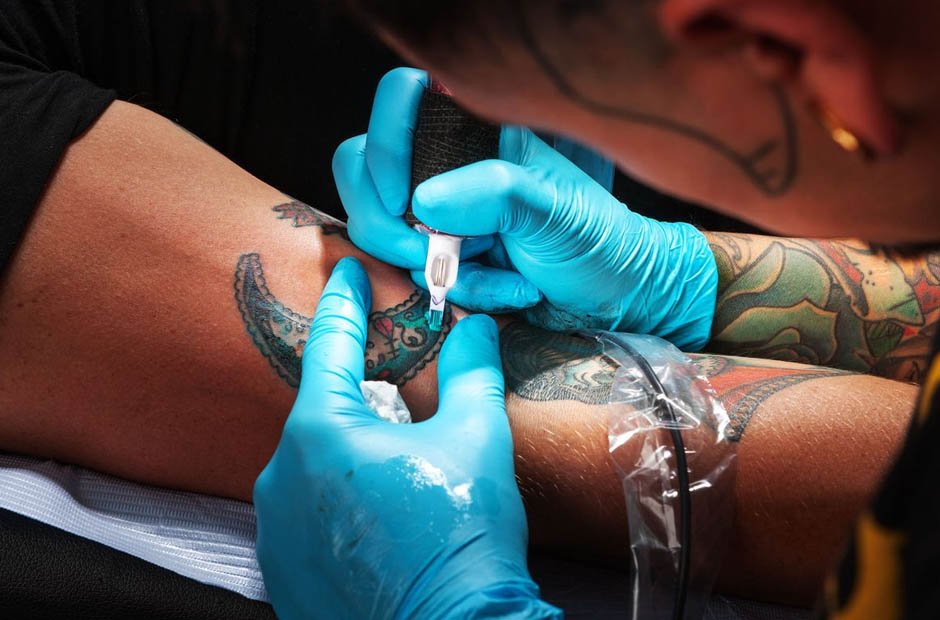Have you ever looked at a tattoo and wondered about the journey beyond the ink? Tattoos are more than just designs etched into the skin; they are statements of identity, creativity, and personal expression. But what happens after the initial excitement fades and the tattoo becomes a permanent part of your life? In this article, we’ll explore the lesser-discussed aspects of life after getting a tattoo, from navigating social and professional spaces to coping with regret and embracing identity beyond the ink.
The Initial Decision: Getting a Tattoo
When you first decide to get a tattoo, it’s often a deeply personal choice. Whether it’s a tribute to a loved one, a symbol of cultural heritage, or simply a piece of art you admire, tattoos hold significant meaning for many people. The process itself can be exhilarating, from choosing the design to sitting in the tattoo artist’s chair as they bring your vision to life.
However, the decision to get a tattoo is not one to be taken lightly. It’s important to consider the motivations behind your choice and ensure that you’re comfortable with the permanence of the decision. Take the time to research tattoo artists, discuss your ideas with them, and carefully consider the placement and size of your tattoo.
The Tattoo’s Evolution Over Time
After the initial excitement of getting a tattoo wears off, you may find that your feelings towards it evolve. What once felt like a bold statement of identity may start to blend into the background of your daily life. You might find yourself reflecting on the significance of the tattoo and how it fits into your evolving sense of self.
It’s not uncommon to experience a range of emotions after getting a tattoo, from pride and confidence to moments of doubt or uncertainty. Remember that it’s okay for your feelings towards your tattoo to change over time. Allow yourself the space to grow and evolve, both as a person and as someone with a tattoo.
Navigating Social and Professional Spaces
One of the most significant aspects of life after getting a tattoo is navigating how it impacts your interactions with others, both socially and professionally. While tattoos are increasingly accepted in many social circles, there may still be instances where they are met with judgment or prejudice.
In professional settings, tattoos can present unique challenges, particularly in industries with strict dress codes or conservative environments. It’s important to consider how visible your tattoos are in professional settings and to be prepared to address any concerns or questions that may arise.
Maintenance and Care
Proper aftercare is essential for ensuring that your tattoo remains vibrant and healthy for years to come. This includes following your tattoo artist’s instructions for cleaning and moisturizing the tattoo, as well as avoiding exposure to sunlight and harsh chemicals.
Over time, you may notice that your tattoo starts to fade or lose some of its vibrancy. This is a natural part of the tattooing process, but there are steps you can take to help preserve your tattoo’s appearance. This may include scheduling touch-up appointments with your tattoo artist or making lifestyle adjustments to protect your tattoo from damage.
Coping with Regret and Change
Despite careful consideration, it’s not uncommon for people to experience moments of regret or uncertainty after getting a tattoo. Whether it’s due to changes in personal taste, shifts in identity, or simply a desire for change, it’s important to acknowledge and address these feelings healthily.
If you find yourself regretting a tattoo, remember that you’re not alone. There are many options available for addressing unwanted tattoos, including tattoo removal. Laser removal, in particular, is a common method used to remove tattoos by breaking down the ink particles in the skin. This process may require multiple sessions and can be painful, but it offers a way to effectively remove unwanted tattoos.
In addition to tattoo removal, another option to consider is a cover-up tattoo. This involves designing a new tattoo to cover up the existing one, effectively transforming it into a new piece of artwork. Cover-up tattoos can be a creative way to reclaim ownership of your body and turn a regrettable tattoo into something meaningful.
Take the time to explore these options and find a solution that feels right for you. Whether you choose tattoo removal, a cover-up tattoo, or simply learn to embrace your tattoo as a part of your story, remember that you have the power to shape your narrative and find peace with your decisions.
Embracing Identity Beyond Tattoos
Ultimately, life after getting a tattoo is about embracing the journey of self-discovery and personal growth. While tattoos can be powerful symbols of identity and expression, they are just one aspect of who you are as a person. Take the time to explore other avenues of self-expression and find joy in the many facets of your identity.
As you navigate life with a tattoo, remember to be kind to yourself and embrace the changes that come with each stage of your journey. Whether you’re celebrating the anniversary of your first tattoo or contemplating a new design, cherish the unique story that each tattoo tells and the person you’ve become along the way.
In conclusion, life after getting a tattoo is a journey filled with ups and downs, challenges and triumphs. From the initial decision to get a tattoo to the evolution of your feelings towards it over time, each step of the process shapes your understanding of identity, self-expression, and personal growth. By embracing the changes and challenges that come with life after getting a tattoo, you can find joy and fulfillment in the unique story that each tattoo tells. So whether you’re a seasoned tattoo enthusiast or considering getting your first tattoo, remember that the journey doesn’t end when the ink dries – it’s just the beginning of a new chapter in your life.








